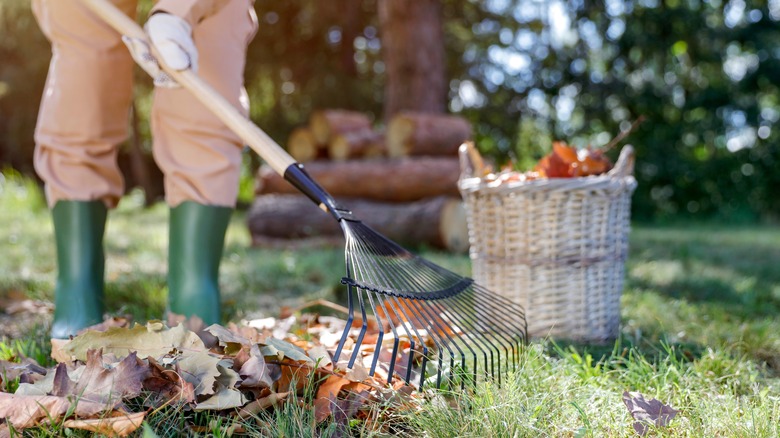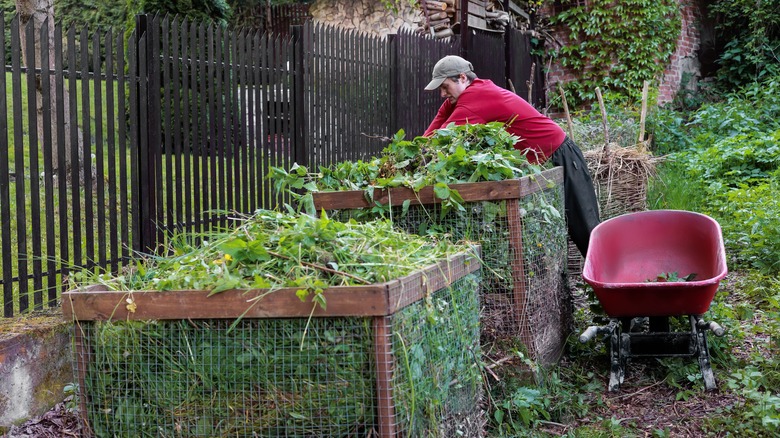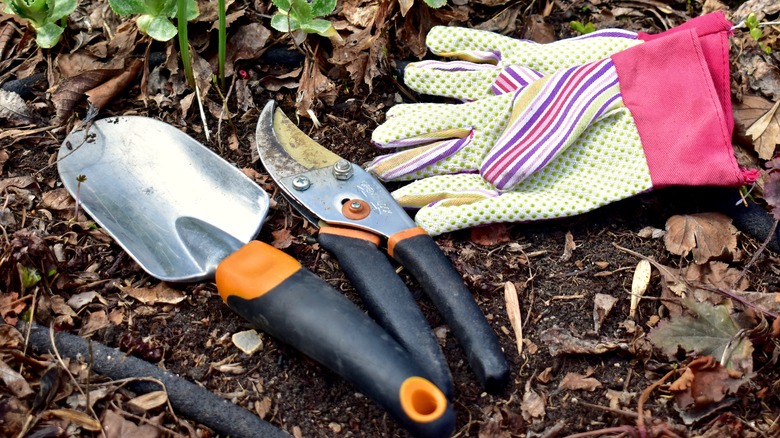November Tasks For Cold Climate Gardens, From Our Professional Gardener
Some people think gardening season in colder zones ends with the first frost, but there's plenty to do in November. As a professional gardener, I often find late autumn to be one of my busiest seasons. You can plan your end of season tasks efficiently by waiting until November to do some chores — think garden clean up, organizing supplies, mulching, and preparations for spring.
When scheduling your end of season chores, it's helpful to make a garden to-do list and prioritize. Some things can wait until spring, like complicated repairs (i.e. replacing the motor in a water feature) or larger maintenance projects (scrubbing a brick patio, for example). Planting bulbs should be completed soon, though tulips can wait until early December if the ground is workable. If something is an eyesore that's easily dealt with (that stack of plastic planters that needs recycling or the overgrown blackberry thicket that needs pruning), it's best to do it now so it's not weighing on you all winter.
Preparation is always on a gardener's mind, and in winter that usually includes planning — that's why we get those gardening catalogs in the mail! But looking at the garden in November — as things are going dormant, and we're re-organizing our workspace — allows for some reflection and re-assessment. What worked, what didn't, and what do we want to do differently next season? Maybe we want to skip a year of growing tomatoes and focus on beans; maybe we want to plant new shrubs, or remove some old ones. This is a perfect time to look around, take some notes, and consider what you want to do come spring.
Garden clean up, composting and mulching are good November chores.
November is a good time to do the real nitty gritty of garden clean up. "Garden clean up" is a tricky term, because it can encompass many different things depending on the garden and the gardener: For some, it may include cleaning tools and storing them in the shed or garage. For others, it may mean raking and doing one last mow, then adding leaves and grass clippings to the compost bin. But most often, garden clean up means plant care (deadheading, pruning, covering) and, for many gardeners, mulching.
Some plants need pruning in autumn, while some do better with spring pruning, so do your research. When in doubt, wait until spring, except for removing dead or damaged branches. To prevent too much reseeding, cut back plant tops with seeds (like asters, Black-eyed Susans, etc.). However, leaving seed heads intact provides a food source for birds (especially coneflowers, and annuals like sunflowers, cosmos, and zinnias).
This is also a good time for late season mulching to protect plant roots and nourish soil. There's no need to buy mulch: a layer of shredded leaves or raked-up pine straw (long pine needles) will do the trick. In fact, these materials are better than wood chips in autumn because they break down into the soil faster during wet and snowy weather. You can also let autumn leaves remain on your flower beds all winter as a protective layer. Remove gently in spring (a few days after the last frost), to give pollinators and other beneficial insects a chance to emerge.
Cleaning and organizing storage space in fall saves time in spring.
The "garden clean up" that doesn't involve plants is all about organizing: putting seasonal items away, discarding or recycling unwanted supplies or equipment, and doing needed repairs and maintenance. If you have a garden shed or garage storage area, making sure it's clean and organized at the end of the season can save time and frustration in spring. Wiping down surfaces with a diluted white vinegar solution is a cheap, effective cleaning method.
Keeping garden supplies clean helps prevent the spread of bacterial and fungal disease, especially hand tools. After cleaning and disinfecting garden tools, you can sharpen or oil them if needed. Rinse out pots and planters and dry thoroughly before stacking and storing them, and if you have too many plastic seed trays or pots, consider recycling them at the local nursery.
If you have open seed packets, tape them closed and store in a dry, airtight place like a plastic storage bin. The same goes for open bags of amendments or fertilizers: tape them shut or pour them into lidded containers to keep insects or rodents out and prevent spillage. I try not to store large bags of soil or mulch over the winter, but if I do, I try to make sure they're in a dry location — these products can grow mold if they get damp inside their bags. The same goes for tubers stored for spring planting, like cannas or dahlias: Keep them in a dry medium, like sand or peat moss, in an airtight container.


